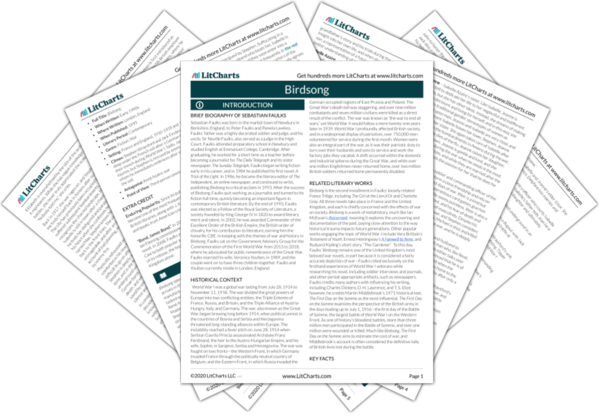This final birdsong symbolizes optimism; however, this hopefulness is somewhat guarded. Crows also often symbolize death and bad luck, and this harkens back to the unspeakable violence that humankind is capable of. Ultimately, Faulks argues that future generations must remember all that the war entails—even the tragedy.
